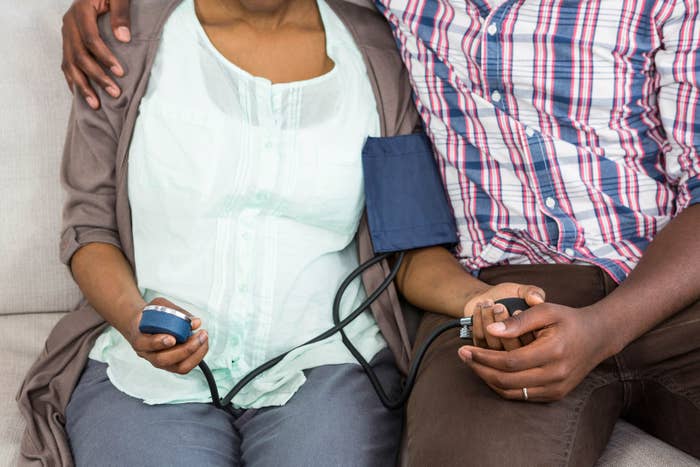
It’s an all too familiar moment for many people, particularly women and people of color. Maybe you’re ignored in a meeting, or you feel like a male colleague is lauded for voicing the same idea. Maybe a clerk follows you around the store, thinking that you’re the type of person to shoplift.
In those moments you may quite literally feel your blood pressure rising — your cheeks flushing, your heart beating faster.
Now a new study suggests that such everyday slights may actually raise the blood pressure of women over time.
“Discrimination is just simply bad for your health. That’s no longer a question,” Danielle L. Beatty Moody, the study’s lead author, told BuzzFeed News.
Beatty Moody, of the University of Maryland, Baltimore County, and colleagues looked at data from 2,180 women who participated in the Study of Women’s Health Across the Nation. The study included middle-aged women who were black, white, Hispanic, and Asian American, including those of Japanese and Chinese ancestry.
The researchers asked the women about experiences where they felt ignored, were treated as if they were not as smart, were treated with less courtesy, or received poorer service in stores or restaurants, according to the report in the Annals of Behavioral Medicine.
These subtle moments of discrimination often go unchecked and unnoticed by those who don’t experience them.
“Basically it asked about the frequency of your experiences in your day-to-day life of being threatened of harassed, people acting like they’re better than you, or that you’re less smart,” said Beatty Moody.
The results suggest that regular experiences of everyday discrimination were linked to a one- to two-point rise in blood pressure during the 10-year study.
The average increase in blood pressure sounds small — two units for systolic blood pressure and one unit for diastolic blood pressure — but it’s not insignificant in terms of health impact. Systolic pressure is the first number in a reading and is the pressure when the heart is beating; diastolic pressure, the second number, is the blood pressure between beats.
Normal blood pressure is 120/80 mm Hg, while anything above that is considered at risk for or possible high blood pressure.
"Even differences of just two or greater millimeters of mercury for blood pressure can be predictive of future stroke, heart disease, and predicted mortality outcome," said Beatty Moody.
Weight was also important in the study. The women who had higher blood pressure also tended to have a higher body mass index and waist circumference. It sounds like a chicken and egg scenario — are overweight women more likely to experience discrimination? To address that, the researchers excluded 116 women who felt like their appearance was the primary reason they experienced discrimination.
The results are the same with those women excluded, although the researchers couldn't completely rule out whether weight had an impact in other ways.
Beatty Moody noted that there’s other research that suggests discrimination itself is associated with weight gain, possibly due to stress. The same has been found for depression — discrimination is also associated with low moods.
“I think the literature clearly shows there’s a problem when people are experiencing ongoing discrimination,” she said.
Beatty Moody’s results add to a growing body of work looking at how gender and discrimination might lead to poorer health outcomes. A study released earlier this year, for example, found that women were more likely to die after a heart attack if their doctor was male, while the same wasn’t true if they were treated by a female physician.
This sort of work isn’t exactly new — Beatty Moody noted that women have been studying these outcomes for a long time — but it has gained some prominence as of late.
“What I would say is that it has not been easy to get these issues at the forefront,” she said, adding that movements such as Black Lives Matter and #MeToo have made space to address groups that have been historically marginalized in medicine.
“When we begin to understand the power these experiences have, we’ll understand it is really a function of the structure and culture of our country.”
